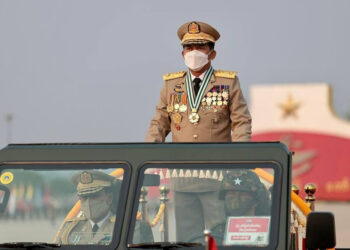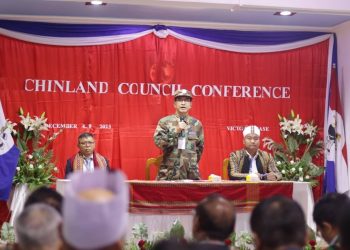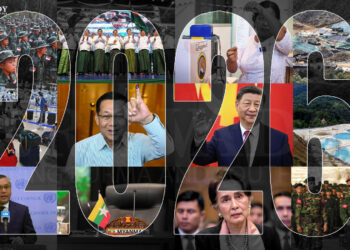YANGON— The ruling National League for Democracy’s (NLD’s) move to amend the military-drafted Constitution has drawn strong resistance from the military, or Tatmadaw, which sees safeguarding the Constitution as one of its main duties.
The military said the NLD’s formation of a joint committee tasked with amending the Constitution “breached constitutional rules and parliamentary by-laws”. The military’s commander-in-chief and generals have come out saying they are not opposing amending the Constitution, but warned against any adjustments that might harm its “essence” or any of the 48 basic principles of the Union, as stated in the charter’s Chapter 1.
The Irrawaddy recently spoke with a number of ethnic politicians and political analysts for their views on the military’s resistance to the NLD’s attempts at constitutional changes.
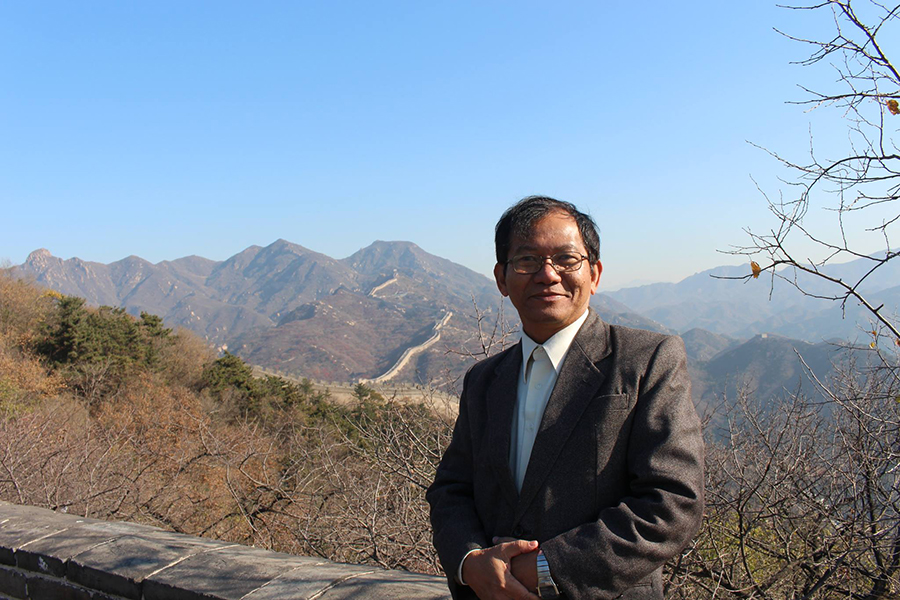
U Ye Tun, political analyst and former lawmaker with the Shan Nationalities Development Party (SNDP)
“It is not [true] that the formation of the committee is breaching the law. For charter amendments, a bill signed by at least 20 percent of lawmakers must be submitted before it can be discussed in Parliament. But what the NLD is doing now is not that step yet. The committee was formed to review potential amendments and that’s the same as what the Parliament did under the previous [USDP] government.
I think the military dislikes [the NLD’s forming of the committee] as it worries about debates and discussions on amending the articles which it is not yet willing to accept. This is because if there are any proposed amendments against their will, they will need to boycott them and that would only backfire on them politically. And if it thinks the NLD is intentionally trying to cause that to happen, it is not good.”
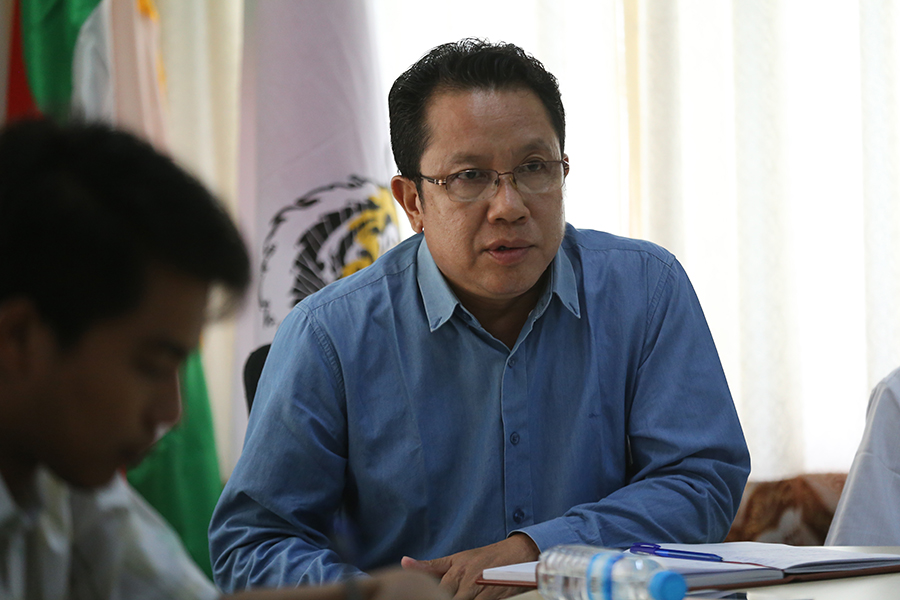
U Sai Leik, Shan Nationalities League for Democracy (SNLD) spokesperson
“The military needs to consider whether the 2008 Constitution has been drafted with all ethnic people’s wishes. It seems it is forgetting that. If the public demand charter change, it needs to accept it. Now, the ethnic parties and the ruling party are taking steps toward constitutional change. The ruling party has the public mandate and thus their attempts to amend the Constitution is the public’s desire. If the military really “represents the people”, it must accept amendments to the Constitution to reflect the people’s aspirations. It has a duty to safeguard all constitutions [not only the 2008 Constitution].
When we are building a democratic Union for equality and autonomy, the military is just an institution. It needs to consider [the fact that] the stance of their institution doesn’t represent the entire nation. If it doesn’t consider that, the current peace process will be worse.
But now I think the military is just looking and thinking [about protecting] their own interests.”
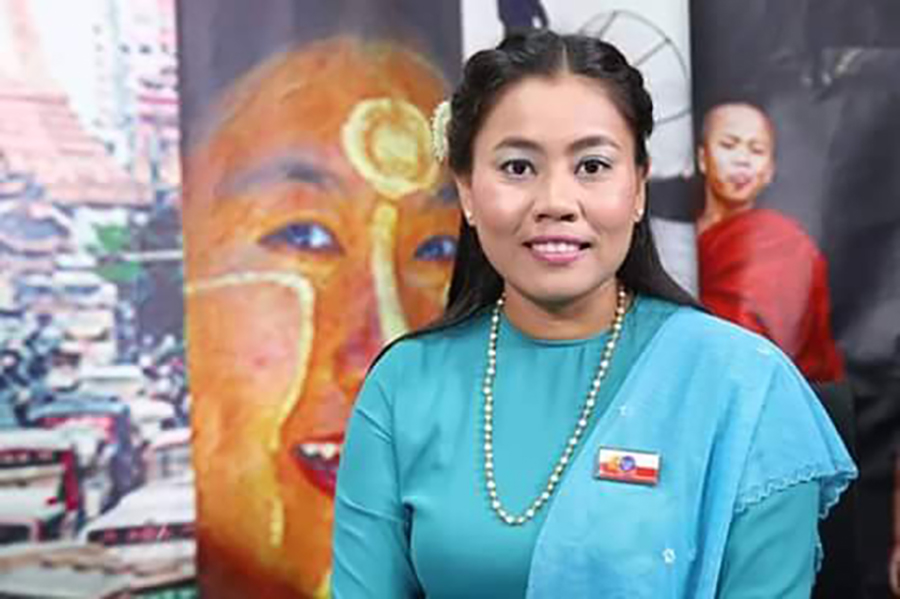
Htoot May, an Arakanese Upper House lawmaker
“The elected civilian government is now preparing and making reforms to establishing a democratic federal Union that the public demands. On the other hands, the military which takes a key role under the Constitution has taken a hard line [against the NLD’s action] from the outset. It is not a good sign for the country.
“What is the essence? The essence [of the law] should be for the public, equality and justice. It shouldn’t mean privileges for military nor any organization. Even in the basic principles [stated in the Constitution], there are plenty that need to be amended and rewritten. For example, it states “the Union’s consistent objectives are [the] flourishing of a genuine, disciplined multi-party democratic system”. I haven’t seen such principles in any democratic country where their democracy is based on justice, human rights and freedom. If we say democracy, the administration of the defense services needs to be under the control of the head of the Union—the president—and the Parliament needs to be made up of 100 percent elected representatives.
It is we, the people, who should be concerned about the essence of the Constitution. That’s because the essence of the current Constitution doesn’t ensure the ethnic people’s rights, it’s not really designed for the State and its people. Instead it gives privileges to “an organization”. That is why we should be [talking about the essence of the Constitution], but now the wrong group is saying that.”
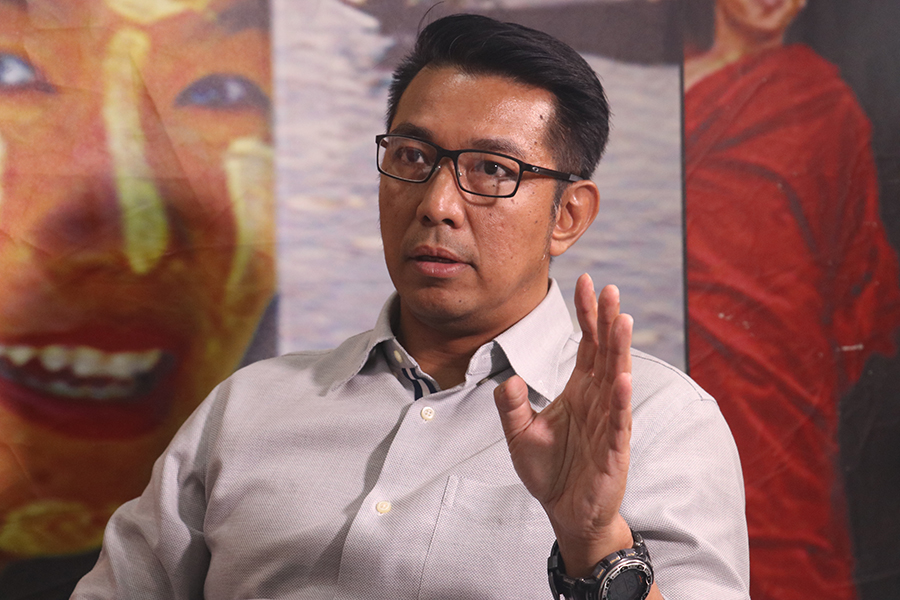
U Min Zaw Oo, executive director of the Myanmar Institute for Peace and Security
“The military chief also said that the military won’t allow changes which would harm the basic principles of the Union [stated in the Constitution]. Among the basic principles, there are those which directly relate with the military, including enabling the military to participate in a national political leadership role in the State and allowing it the right to independently administer and adjudicate on all affairs of the armed forces [not under civilian control]. The military won’t give in to amending those points. It firmly keeps holding its red line.
There will be many difficulties in carrying out constitutional amendments without having the military’s agreement. To amend the military’s political leadership role and its right to control security issues granted in the Constitution, we will need to go back to the peace process and negotiate with the ethnic armed groups.”
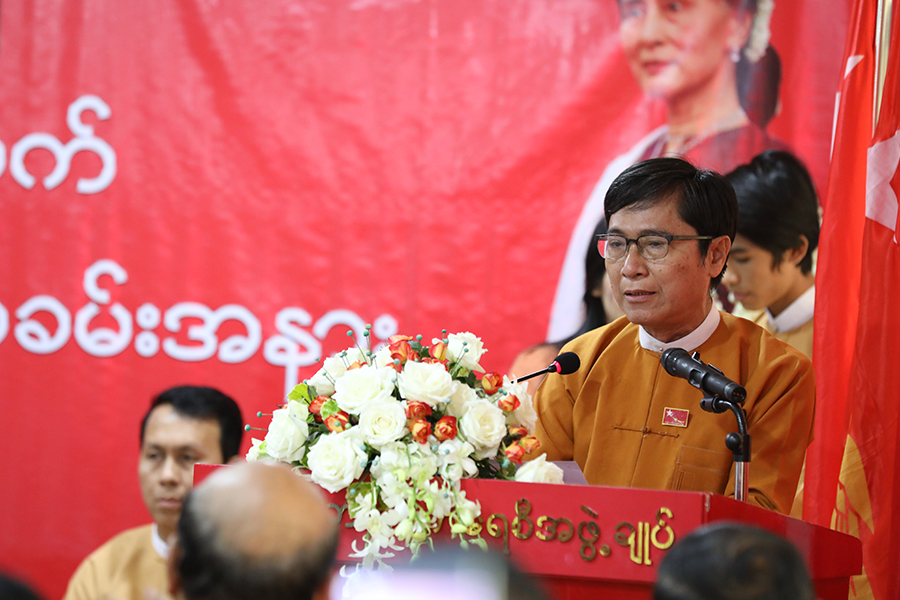
U Myo Nyunt, NLD spokesperson
“We need to question what they (the military) means when it talks about the essence of the Constitution. The essence of the Constitution should be public representation and the deriving of the Union’s sovereign power from the public.
But if they see maintaining the Tatmadaw’s important role [in politics] as the essence, I would say we don’t share the same view on that.
It seems that they [the military] want to amend the Constitution as they desire. But we will amend it as per the wishes of all ethnic people.
What we are doing is within the legal framework. We [the NLD] always maintain a policy of non-violence, so nothing will happen that will harm the public. I urge people not to worry and to overwhelmingly support us.”









